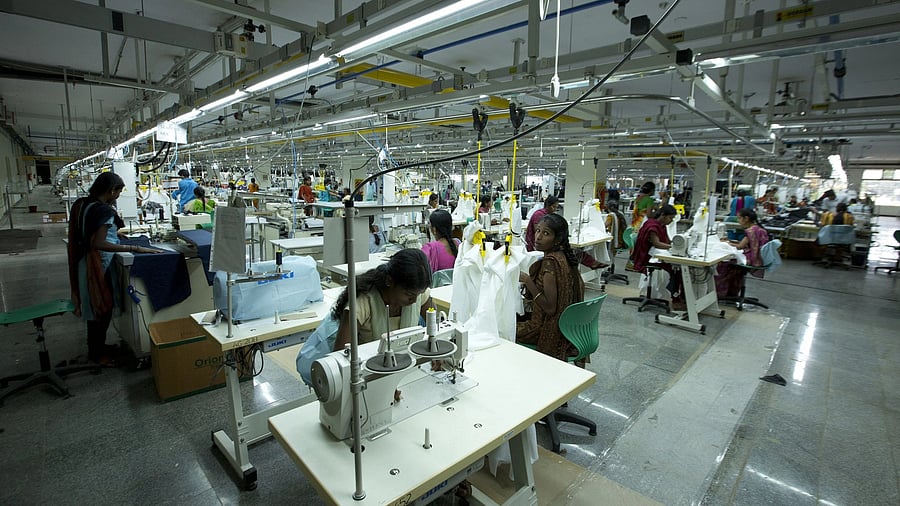
New Delhi: Pushing ahead with India Inc’s long-standing demands of labour reforms, the Union government on Friday announced implementation of four consolidated labour codes that seek to build a future-ready labour ecosystem by promoting formalisation, expanding social security and boosting women’s participation.
Under the new regulations, women will be permitted to work night shifts across all industries including mining, heavy machinery and hazardous sites.
Social security benefits like medical cover, paid leave and gratuity will have to be extended to those fixed-term employees also in line with those offered to permanent workers. Workers will be eligible for gratuity after one year instead of the current practice of five years.
Four new codes – Code on Wages (2019), Industrial Relations Code (2020), Code on Social Security (2020) and the Occupational Safety, Health and Working Conditions (OSHWC) Code (2020) – formally became law effective from Friday, around five years after being passed by Parliament.
Through this move, 29 labour laws have been consolidated in four codes. A majority of the British colonial era rules have been either rationalised or repealed.
“These Codes will serve as a strong foundation for universal social security, minimum and timely payment of wages, safe workplaces and remunerative opportunities for our people,” Prime Minister Narendra Modi said in a post on X.
India Inc, which has been pitching for labour reforms for decades, welcomed the move saying it would ease the compliance burden.
“This long-awaited reform brings India in line with global standards, eases compliance, empowers enterprises and strengthens the foundations for higher productivity, greater competitiveness and accelerated job creation,” said Chandrajit Banerjee, Director General, Confederation of Indian Industry (CII).
The new rules allow companies to run longer factory shifts. Companies will also have the flexibility to operate night shifts with women workers. The approval limit for lay-offs has been increased from 100 to 300 workers. This means, companies won’t need any authority approval for firing up to 300 employees. States have been given flexibility to further enhance this limit.
Now, there will be a single registration and licensing framework for labour regulations across India. An inspector-cum-facilitator system will be introduced to support compliance through advisory mechanisms rather than punitive action.
A joint platform of 10 central trade unions has termed the new regulations “anti-worker, pro-employer labour codes”. Terming the new laws “deceptive fraud committed against the working people of the nation” the unions have called for a nationwide protest on November 26.
The new codes define gig and platform work for the first time. This will ensure legal and social protection to workers outside traditional employment structures.
Under the new regulations, all workers, regardless of sector, will receive a statutory minimum wage aligned to a national floor rate, along with mandatory timely wage payment and no unauthorised deductions. Every component of the cost-to-company (CTC) will now be treated as remuneration unless specifically exempted, with the maximum exemption capped at 50% of total compensation.
“Wages” will now include basic pay, dearness allowance and retaining allowance. “Now, 50% of the total remuneration (or such percentage as may be notified) shall be added back to compute wages, ensuring consistency in calculating gratuity, pension, and social security benefits,” an official statement said.
“By guaranteeing minimum wages, gratuity and social security for a large segment of the workforce, the reforms modernise long-standing labour frameworks,” said Sunil Chemmankotil, Country Manager, Adecco India.
The Social Security Code expands the definition of “employee” and “worker”, which may bring many people engaged through staffing companies and gig-based models under provident funds and other benefits, something that has been a long-standing demand from IT workers, said Harpreet Singh Saluja, president, Nascent Information Technology Employees Senate (NITES).
The codes further provide for national safety standards, mandatory safety committees in units with 500+ workers and streamlined dispute resolution via two-member industrial tribunals.